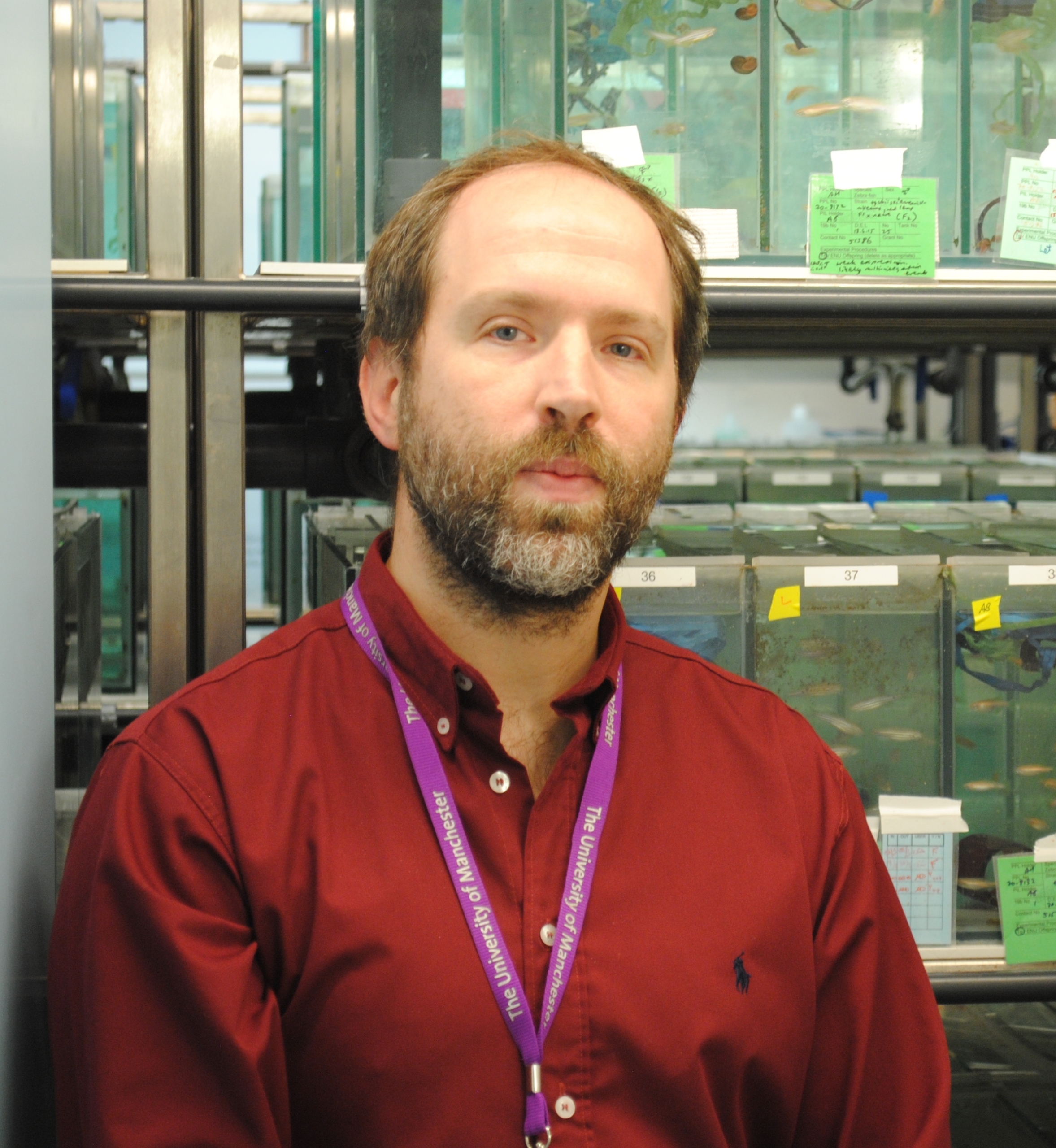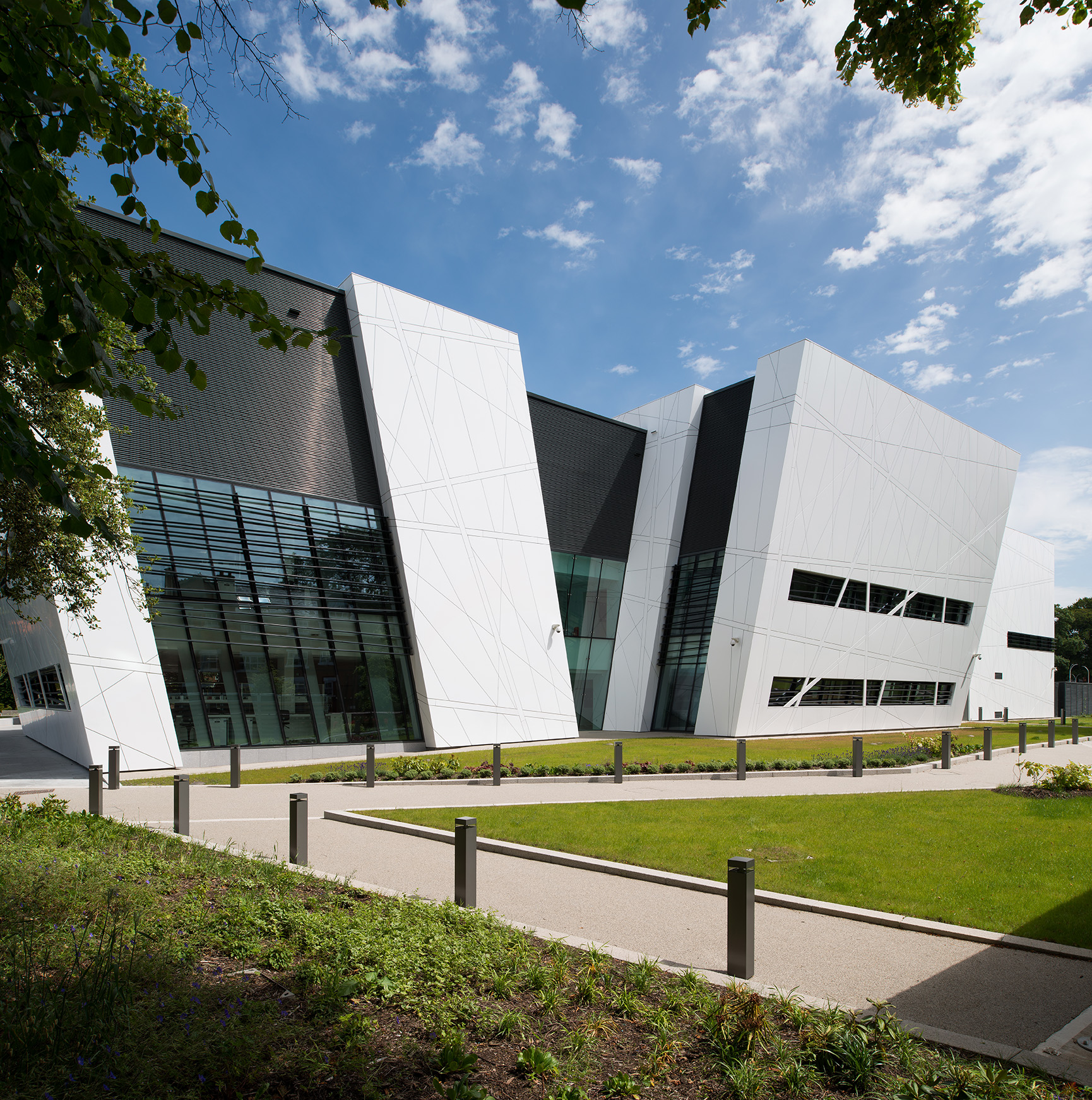Closing date: 17/11/2025
Non-Clinical Studentship Project: Targeting IFN-γ-induced dedifferentiation in melanoma as an immune evasion strategy
Lead Supervisors: Prof. Adam Hurlstone
Co-Supervisors: Dr Kerrie Marie, Dr Rebecca Lee
Applications Deadline: 12:00pm Monday 17th November 2025
Interviews: Week commencing 12th January 2026
Start date: September 2026
Project Keywords: IFN-γ, melanoma, dedifferentiation
Research Opportunity: Non-Clinical Studentship leading to the award of PhD
Project Outline
Immune checkpoint inhibitors have had a dramatic effect on surviving melanoma. However, not everyone is cured. Melanoma cells become resistant to checkpoint blockade therapy by slipping into embryo-like, “neural-crest” transcriptional cell states that hide immune targets. Recent work shows that prolonged interferon-gamma (IFN-γ) —an inflammatory signal released during anti-tumour immune responses — can lock melanoma into this dedifferentiated state. We aim to understand and reverse that switch.
This PhD will investigate how IFN-γ–responsive genes that are central to neural crest biology, help melanoma cells adopt and maintain a resistant identity. Using well-characterised human and mouse cell models, the student will perturb these genes (e.g. gene knock-down/CRISPR, small molecule inhibitors or blocking antibodies where appropriate) and measure effects on melanoma differentiation markers, survival under inflammatory stress, vulnerability to cytotoxic T-cell attack, and tumour growth in vivo. Methodologies will include flow cytometry, multiplex imaging, transcriptomics (bulk RNA-seq), functional T-cell co-culture assays, and in vivo tumour transplantation models.
Training spans cancer cell biology, immunology, in vivo studies and data science, with opportunities to learn transcriptomic and spatial analyses and work within a collaborative basic-preclinical environment that has established strong ties with the clinic. By defining which IFN-γ–induced factors keep melanoma in an immune-evasive state — and how to switch them off, this project could inform combination strategies that restore tumour differentiation and improve responses to immunotherapy.
Applications for this project are now open. Please complete your application on The University of Manchester website.
About Prof. Adam Hurlstone (project Lead Supervisor)
Currently, my laboratory investigates how to harness T cells to eradicate cancer. On the one hand, we investigate adaptive resistance to immune checkpoint inhibitors, a class of drugs that reinvigorate T cells that have become dysfunctional in cancers. Sometimes this dysfunction appears in response to therapy (adaptive resistance) and our aim is to reverse this in order to preserve a clinical response. We are also engineering naive T cells to react to tumour antigens by providing them with novel antigen receptors. Again these engineered T cells may become inactive after being inside the tumour microenvironment and we are investigating how to overcome this obstacle too.

Key information
Before submitting an application, please ensure you have read the information below about the funding arrangements and eligibility for Non-Clinical Studentships.
We also encourage you to get in contact with the lead supervisor to discuss the project and any particulars.
Further information is available on the Non-Clinical PhD Studentships webpage.
Our Non-Clinical PhD Studentships are usually funded for four years, with funding covering:
- Project running costs
- University tuition fees university tuition fees (at the UK rate, with some scholarships available for high-performing EU/International candidates)
- An annual stipend of £22,113 to help with living costs
Studentships are highly competitive and so we encourage you to contact any supervisors who you are interested in working with before applying for our Non- Clinical PhD Studentships.
International Candidates
The University of Manchester aims to support the most outstanding applicants from outside the UK.
We are able to offer a limited number of bursaries to high-performing EU and international candidates, covering PhD fees only. Bursaries do not include financial support for visa/health surcharges.
We assess each EU and international candidate’s suitability for a bursary at the application and interview stages.
You must hold, or be about to achieve, a First or Upper Second-class honours degree in a relevant subject. A related Master’s degree is also an advantage.
International applicants (including EU nationals) must ensure they meet the academic eligibility criteria (including English Language) before contacting potential supervisors to express an interest in their project. Eligibility information can be found on the University’s Country Specific information page.
Applications for this programme are now open. Please submit your application on The University of Manchester application portal.
Key dates
- Applications open: Monday 6th October 2025
- Application deadline: 12:00pm Monday 17th November 2025
- Interviews: Week commencing 12th January 2026
- Start date: September 2026
Useful Links
Submit your application
Interested in applying for this opportunity? Submit your application on The University of Manchester application portal.
Non-Clinical PhD Studentships
Learn more about our Non-Clinical PhD Studentships.
Get in Touch
Contact Dr Yasmin Noori Jenaghard, Postgraduate Programme Manager.
Researcher Stories
Read first-hand experiences of from cancer scientists from across Manchester.
Why Manchester?
Find out why postgraduate students choose to study in Manchester.
A Day in the Life of a Non-Clinical PhD Student
Watch our short video to see what it's like to be a Non-Clinical PhD student in Manchester.





